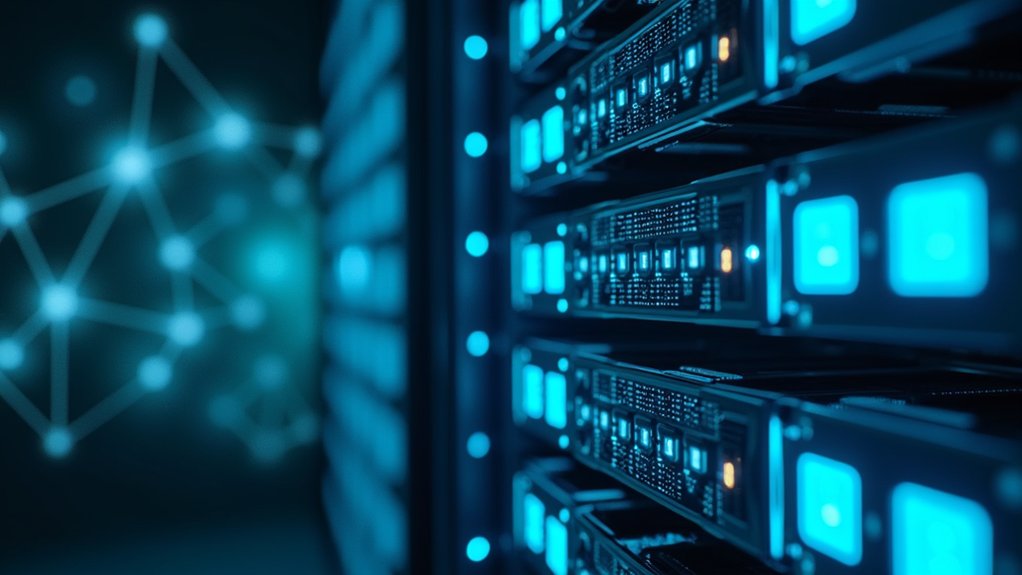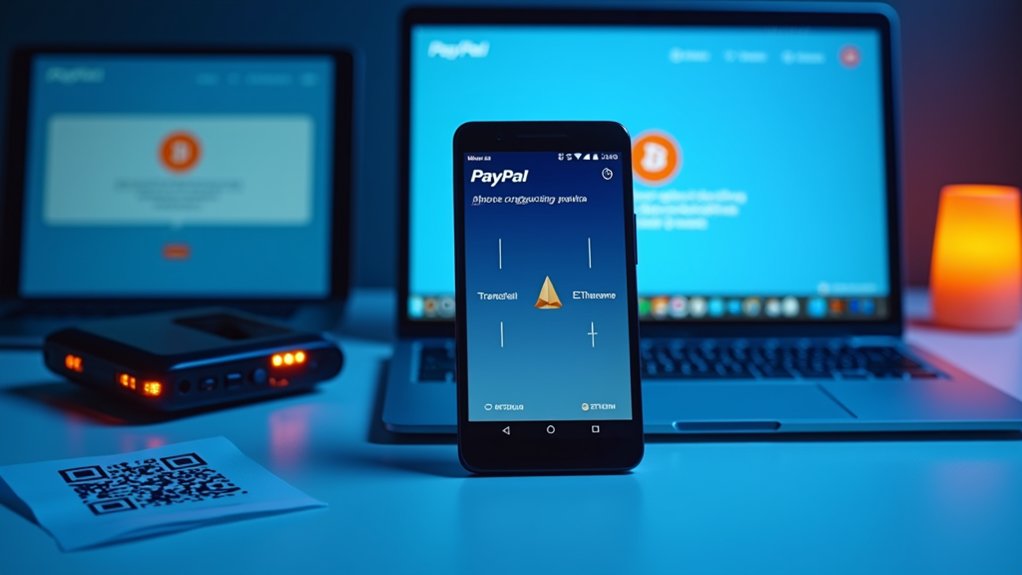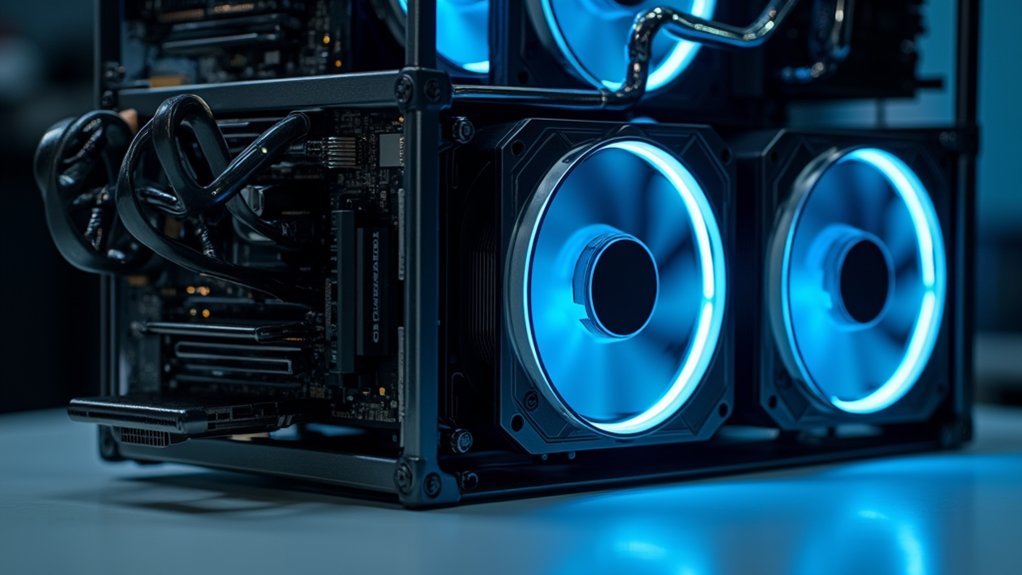Ankr, established in 2017, is a decentralized blockchain infrastructure provider that addresses critical scalability and accessibility challenges within cryptocurrency networks. The platform utilizes advanced sharding technology to enhance high-traffic application performance while implementing decentralized node infrastructure to increase network participation. Throughout market volatility and technological shifts, Ankr has maintained its founding vision of democratizing blockchain access, adapting its services to accommodate institutional entry and evolving regulatory frameworks. Further exploration reveals its strategic positioning within the broader blockchain ecosystem transformation.

A pioneering force in the rapidly transforming blockchain infrastructure landscape, Ankr Crypto emerged in 2017 during a pivotal period of cryptocurrency innovation and development. The company established itself during a time when blockchain technology was shifting from experimental concepts to practical applications, capitalizing on growing market demand for accessible distributed ledger solutions. Ankr's founding coincided with the broader cryptocurrency market's expansion phase, positioning the platform strategically to address emerging infrastructure challenges confronting the nascent industry.
The 2017 launch of Ankr represented a calculated response to the increasing complexity of blockchain networks, which were experiencing significant growing pains related to scalability, accessibility, and resource allocation. By focusing on decentralized infrastructure services from its inception, Ankr differentiated itself from contemporaneous projects that primarily emphasized token creation or speculative applications. This infrastructure-first approach allowed the company to develop solutions addressing fundamental technological barriers rather than merely participating in the token proliferation characteristic of that period.
While others chased token speculation, Ankr pioneered decentralized infrastructure solutions addressing blockchain's fundamental scalability challenges.
Since its establishment, Ankr has progressed its service offerings in response to market trends, expanding beyond its initial focus to include a broad suite of blockchain infrastructure solutions. The SWOT Analysis reveals that one of Ankr's key strengths lies in its decentralized node infrastructure that enables greater network participation. The platform employs advanced sharding technology to significantly enhance scalability for high-traffic applications. The company's trajectory reflects the maturing cryptocurrency ecosystem, with its development roadmap adapting to institutional entry into the space, regulatory developments, and changing technical requirements of modern blockchain networks. Ankr's progression from 2017 onwards mirrors the broader transformation of blockchain technology from specialized interest to mainstream financial consideration.
The founders' vision of democratizing blockchain infrastructure access has guided Ankr's strategic decisions throughout market cycles, informing product development initiatives and partnership formations. This consistent philosophical orientation has enabled the company to maintain relevance despite market volatility, technological shifts, and competitive pressures.
As the blockchain landscape continues its advancement toward greater unification with traditional financial systems, Ankr's founding principles continue to inform its approach to infrastructure provision, development support, and network participation mechanisms.
Frequently Asked Questions
What Are the Risks Associated With Investing in Ankr?
Investment in Ankr presents multifaceted risks spanning market, project-specific, regulatory, and technical domains.
Market risks include high volatility and liquidity challenges, while project-specific concerns center on concentration around Ankr Inc. and decentralization difficulties.
Regulatory uncertainty persists regarding security classification, potentially exposing investors to enforcement actions.
Technical vulnerabilities, including cybersecurity threats to node networks, code defects, and blockchain integrity issues, further compound the risk profile for potential stakeholders contemplating this digital asset.
How Does Ankr's Staking Mechanism Differ From Competitors?
Ankr's staking mechanism distinguishes itself through its multi-chain compatibility across seven+ blockchains, incorporation of flash unstaking for immediate liquidity, and implementation of Distributed Validator Technology for enhanced security.
Unlike many competitors, Ankr combines liquid staking tokens with cross-chain bridging capabilities, allows automatic reward accrual without manual claiming, and employs a randomized validator selection process that prioritizes service quality rather than stake size, thereby minimizing centralization risks and single-point failures.
Is Ankr Compatible With Hardware Wallets?
Ankr offers robust hardware wallet compatibility, primarily supporting Ledger Nano devices through MetaMask bridge functionality, while Trezor devices connect via compatible wallet applications.
This combination preserves the security advantages of cold storage, since private keys never leave the physical device, while still enabling participation in staking activities.
Users should note that staking through hardware wallets involves a 10% service fee on rewards, and certain chains, including Polkadot, may require specialized interfaces for full functionality.
What Partnerships Has Ankr Established in the Defi Space?
In the DeFi sector, Ankr has established strategic partnerships with several key players, including unification with liquid staking protocols that utilize their aETHb/c tokens.
Collaborations with major DeFi platforms for infrastructure support, and connections with cross-chain bridges to facilitate interoperability are also part of Ankr's strategy.
These alliances enhance Ankr's utility within decentralized finance ecosystems, while simultaneously providing DeFi projects with reliable, high-performance RPC services and node access for transaction validation and smart contract execution.
How Does Ankr Handle Network Security and Vulnerability Issues?
The organization employs a robust security infrastructure featuring Hardware Security Modules amalgamation with Polychain's Cubist team to secure validator private keys, while implementing both short-lived and long-lived authentication tokens.
Following past exploits, they established an extensive incident response framework, including $15 million in compensatory airdrops, multi-signature authentication with timelocks, and enhanced employee background checks.
Supply chain vulnerabilities are addressed through revised HR protocols, third-party service provider scrutiny, and IP whitelisting restrictions on sensitive operations.









